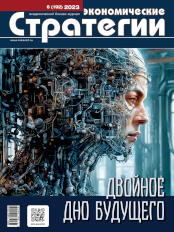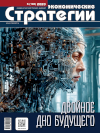Is Human Intelligence Really Human?
DOI: 10.33917/es-6.192.2023.136-143
The author explores phenomenon of “new people”, the type and functions of their inherent intelligence. Novelty as a goal in itself serves as the generative and creative principle of these people, their minds. In the phrases “new man”, “new mind”, it is not people and mind that become significant, but novelty. The demonic character — the devil, who established the first innovation — a sin, became the author, the initiator of novelty in the universe. The devil has perverted the mind, made it a tool of denial and self-denial, of anti-human inventions. Denial of sacredness, betrayal (Judaism) became the first and the main discovery-invention of reason. Death is the second unique discovery and invention of the mind. Torture is the third original discovery and invention of the mind. Healing the mind from demonism is possible only in the context of a holistic spirit, which restores the sacred relationships between mind and consciousness, establishes the semantic and logos responsibility of the mind for its deeds. The first experiments in real purification of the mind were philosophy of economy and sophiasophy. But complete restoration of the union of reason and consciousness, apparently, will be achieved only by a total crisis, which will become the last discovery-invention of the fiery abstract mind.
References:
1. Kutyrev V.A. Chelo-vek tekhnologiy. Tsivilizatsiya fal’shizma [Man of Technology. Civilization of Falschism]. Saint Petersburg, Aleteyya, 2001.
2. Martin G.-P., Shumann Kh. Zapadnya globalizatsii: ataka na protsvetanie i demokratiyu [The Trap of Globalization: An Attack on Prosperity and Democracy]. Moscow, Al’pina, 2001.
3. Materialisty Drevney Gretsii [The Materialists of Ancient Greece]. Moscow, 1955.
4. Kant I. Kritika chistogo razuma: Poln. sobr. soch. [Criticism of Pure Reason]. Vol. 3. Moscow, 1965.













